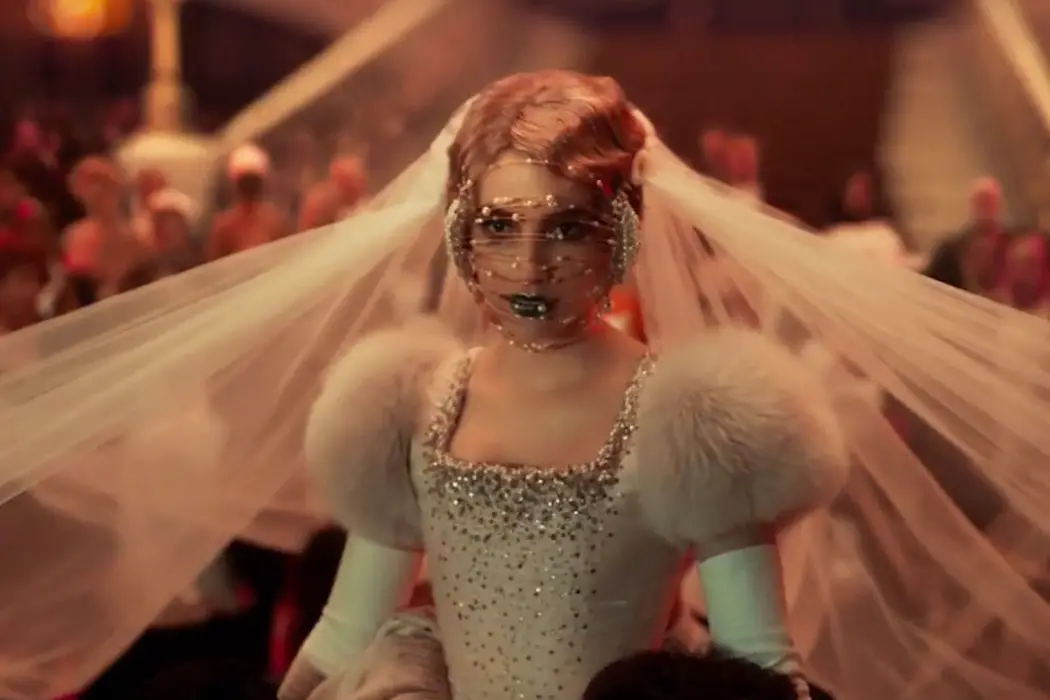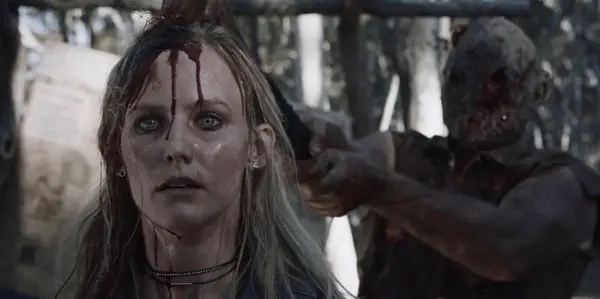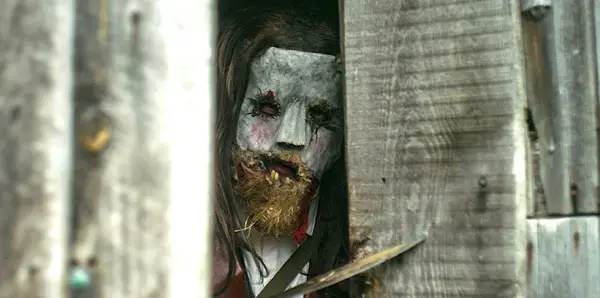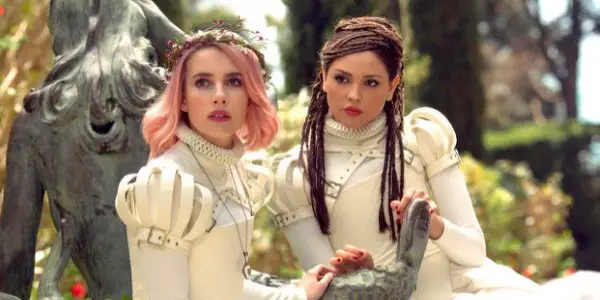Toronto After Dark Film Festival 2019: THE FURIES, MAKING MONSTERS & PARADISE HILLS

Bree is a journalism major living in Toronto. She is…
This week, Toronto After Dark featured films with unique twists on classic plot lines, for a gruesome few nights of psycho killers and secrets. As I wrap up this festival, I can confirm I got my dose of thrills and chills to get me into the Halloween spirit!
The Furies (Tony D’Aquino)

The Furies, directed by Tony D’Aquino was eventful from start to finish and definitely won the award for the goriest film of the festival with its plethora of kill shots and pure madness to make you cringe in the best way. We are introduced to the main character, Kayla (Airlie Dodds), and her best friend Maddie (Ebony Vagulans) as they quarrel below an eerie lit underpass. No short of suspense, the girls are abducted by masked individuals and after a slew of dramatic scenes displaying scalpels and blood, Kayla wakes up in a black box.
A black box that, turns out, happens to be in the middle of a vast expanse of desolate woods. The plot is easily decipherable, yet not completely predictable as many slashers end up being. We are introduced to a few more survivalist characters, as well as disgustingly masked men draped in skins and grunting with a murderous rage.
An interesting component initiated a curiosity factor, where it is discovered that the girls are paired up with a monster. The film gives titles to them, “beauties” and the “beasts”. Making it even more harrowing, after this discovery is made, some of the survivalists loss sight of teamwork and fall just a bit deeper into insanity, making for a quick-paced bloodbath.
Each character alive long enough to make an impact on the audience expose their inner demons in times of danger, and Kayla finds herself watching her back from all angles, unsure where and when the knife will be plunged into her while she’s not looking.
The Furies has an element of design similar to The Hunger Games series due to its “survival of the fittest” theme, but escalates the scales with a more theatrical approach and plenty more gore and severed limbs.
Finding a good psycho killer thriller is difficult nowadays, and despite The Furies lacking that extra punch with a few strenuous moments, I was pleasantly welcomed by this unique display of horror and it even taunted the idea of the killer within, finding the true malice in people.
Making Monsters (Justin Harding, Rob Brunner)

Nowadays, many young adults have found fame and fortune in the world of YouTube and across other social media platforms. Making Monsters, co-directed by Justin Harding and Rob Brunner, follows the story of a couple making their mark on a popular YouTube channel that features Christian Brand (Tim Loden) constantly pulling pranks on his girlfriend Allison (Alana Elmer), by terrifying her to an unrelenting extent.
Now that they’re about to be married and attempting to have a child, Allison is ready to put an end to Chris’ antics. This deal coincides with an invitation to a rustic church that Chris’ friend, Jesse, has renovated into a home. Eager to go on an adventure, Chris and Allison agree.
What is thought to be a great chance to getaway, turns into a harrowing trip filled with more horrors than the couple could imagine. Meeting who they think is Jesse’s boyfriend, David (Jonathan Craig), they are sent into a drug induced haze courtesy of a magic mushroom drink “David” concocts for them.
After a wild night of indulgence, Allison, with a heritage of clairvoyant individuals within her family, begins to see more than what meets the naked eye. While Making Monsters may not be a traditional psycho thriller, it utilizes the terrors of the dark web and strangers in secluded country sides to make a statement and is a thrilling experience that is a fresh take for any slasher fans.
Paradise Hills (Alice Waddington)

Paradise Hills, directed by Alice Waddington, delivers an impactful message of “Do not change who you are for others” as a dark twisted sci-fi fairy tale. Despite being an empowering film that Waddington hopes to inspire young girls of all backgrounds and personalities, the plot fumbles ever so slightly with limited development.
A young girl by the name of Uma (Emma Roberts) finds herself in a strange world when she wakes up in a facility that rehabilitates rebel girls. This facility is located on a beautiful island with lush gardens and winding castle steps.
When Uma originally arrives, she is desperate to escape, but soon develops friendships with her roommates, Chloe (Danielle Macdonald) and Yu (Awkwafina). Uma also meets an enigmatic pop star, Amarna played by Eiza Gonázlez.
With the common goal to get off the island, the girls go through the motions of their “treatment” before discovering the dark truth about where they end up when they complete their time in Paradise. With a cast of strong female roles and a female director, this film is an ode to all the young girls who feel insecure about their perceived flaws. Through a fictional fantasy world of vibrant visuals, Waddington manages to open her creation to interpretation.
The concept itself reminds me vaguely of Alice in Wonderland with its whimsical design and characters but as far as the development of relationships and character arches go, it is slightly artificial and rushed. As a film based on girl power, I would have liked to feel a stronger connection to the characters, who I feel I did not have enough time to get to know. Despite this flaw, I enjoyed the film nonetheless for its creative individualism.
Find more information about the Toronto After Dark Film Festival here.
Does content like this matter to you?
Become a Member and support film journalism. Unlock access to all of Film Inquiry`s great articles. Join a community of like-minded readers who are passionate about cinema - get access to our private members Network, give back to independent filmmakers, and more.
Bree is a journalism major living in Toronto. She is a passionate cinephile with a love for 70’s music and can be found in any nearby bookstore. Bree aspires to travel and share her love of story telling while embracing inclusivity in her writing.













